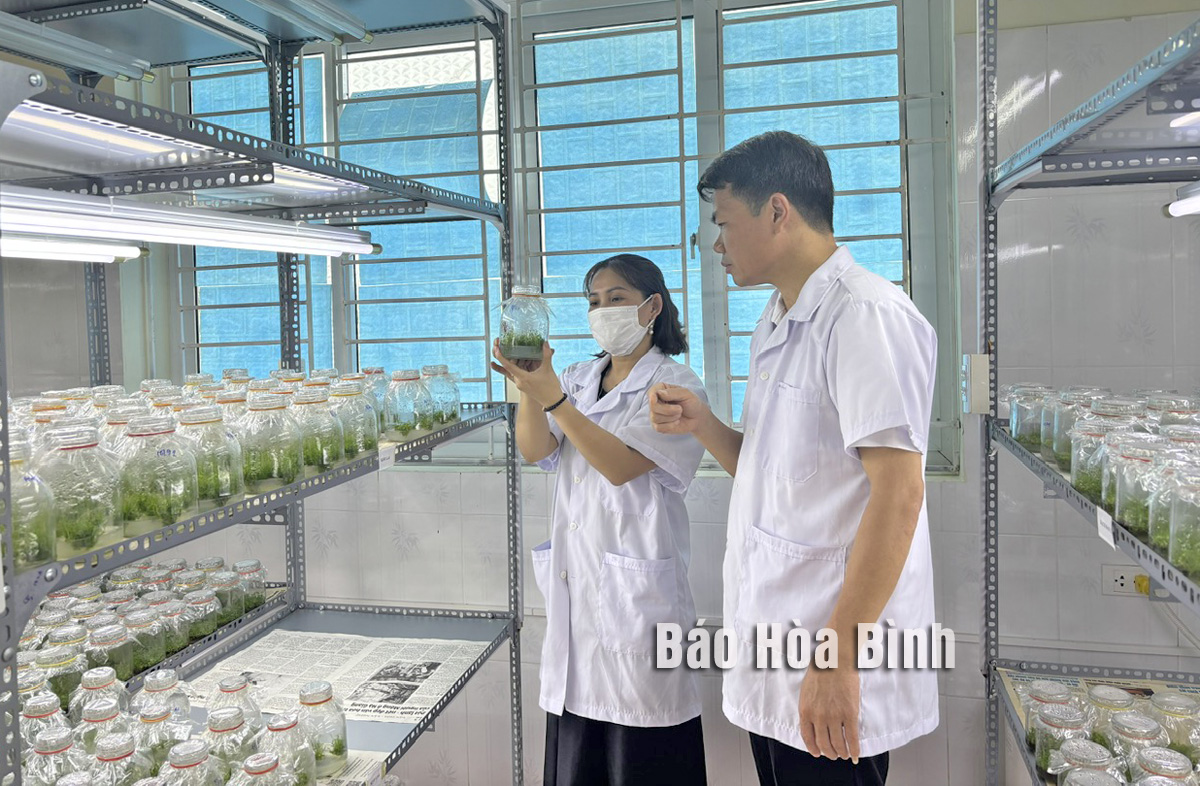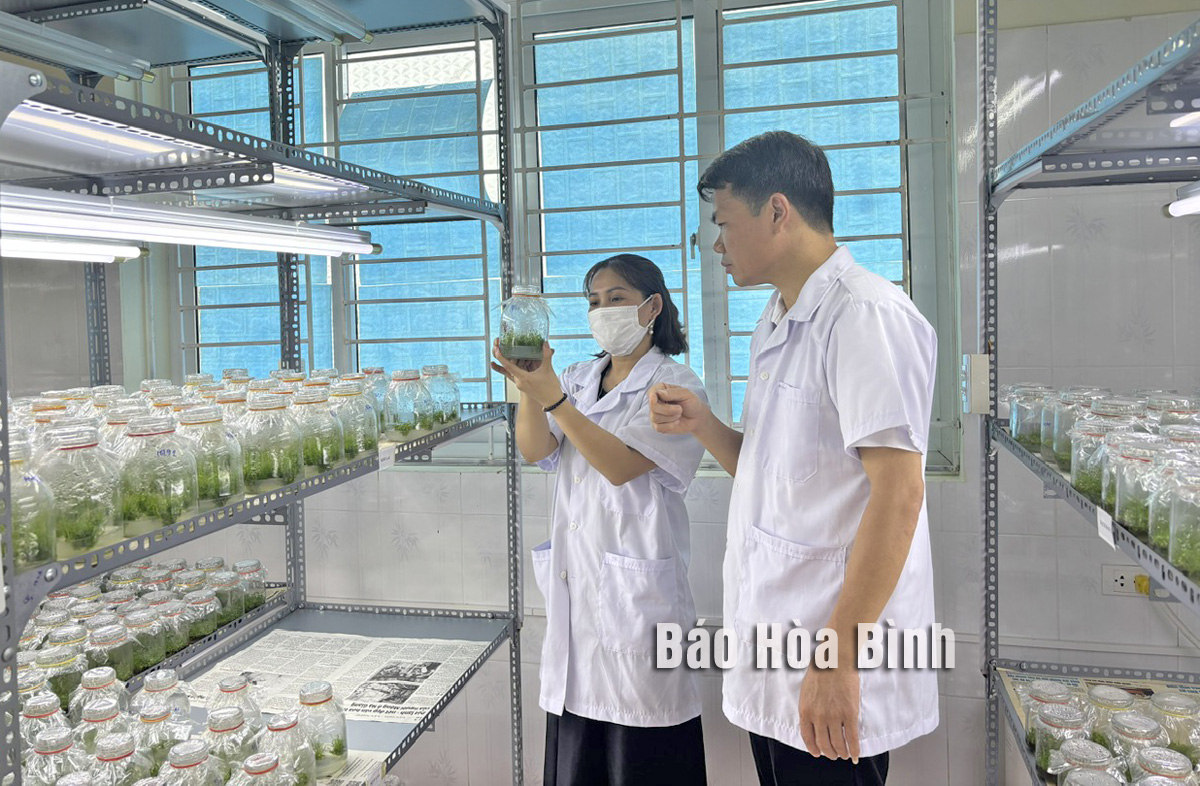
Hoa Binh province is steadily advancing its agricultural sector through the adoption of high-tech solutions, seen as a sustainable path for long-term development.

The Centre for Crop, Livestock, and Aquatic Breeds under the Department of Agriculture and Environment develops high-quality plant varieties using tissue culture methods.
To date, the province has approved three high-tech farming
zones and 11 specialised production areas, focusing on key local products.
Among the most effective methods applied is plant tissue culture, which allows
for rapid, disease-free propagation of various crops, including sugarcane,
medicinal herbs, and high-value vegetables and flowers. This method has also
supported the province’s citrus replanting efforts by producing clean,
high-quality seedlings.
Nguyen Van Hung, Director of the Center for Crop, Livestock, and Aquatic Seed
Production, stated tissue culture technology is a step forward in high-tech
agriculture, enabling farmers to proactively prepare economically valuable crop
varieties for the market, raising awareness of modern farming models, thus
allowing for the expansion of scale and economic efficiency in cultivation
amidst the adverse impacts of climate change.
The province now has around 150 certified farming facilities using VietGAP,
GlobalGAP, or organic practices across 2,300 hectares of crops, 200,000 sq.m of
aquaculture, and 1,600 tonnes of meat annually.
About 120 livestock farms use modern systems such as enclosed barns and
automated feeding. Water-saving irrigation is also widely applied on nearly
1,000 hectares of upland crops.
Private firms have played a significant role. Hoan Phuc Hoa Binh Co., for
example, has invested in US standard greenhouses to grow orchids using fully
automated climate and irrigation systems. The company cultivates over 50 orchid
varieties through tissue culture techniques.
To facilitate hi-tech application, the agriculture department has developed
digital platforms for pest monitoring and soil suitability mapping. It is also
issuing planting area codes aligned with national traceability systems.
Six high-tech agricultural projects have been implemented, alongside dozens of
science and technology initiatives, including projects focusing on
biotechnology, drip irrigation, cold storage, and processing of local
specialties.
Local authorities highlight the need to prioritise key crops and livestock for
scaling up technology use. A value chain approach and increased private sector
engagement are also seen as essential to expanding high-tech farming across the
province.
According to data from the Hoa Binh Provincial Party Committee, the industrial production index for the first six months of 2025 is estimated to have increased by 20% compared to the same period last year. This marks the highest year-on-year growth rate for this period since 2020.
In the first six months of 2025, Hoa Binh province’s export turnover was estimated at 1.145 billion USD, marking an 18.11% increase compared to the same period in 2024. Import turnover was estimated at $ 804 million, a 17.15% increase, which helped the province maintain a positive trade balance.
The lives of the ethnic minority farmers in Tan Lac district have gradually improved thanks to the new directions in agricultural production. This is a testament to the collective strength fostered through the professional associations and groups implemented by various levels of the district’s Farmers’ Union.
With the motto the "product quality comes first,” after nearly one year of establishment and operation, Muong village’s Clean Food Agricultural and Commercial Cooperative, located in Cau Hamlet, Hung Son Commune (Kim Boi district), has launched reputable, high-quality agricultural products to the market that are well-received by consumers. The products such as Muong village’s pork sausage, salt-cured chicken, and salt-cured pork hocks have gradually carved out a place in the market and they are on the path to obtaining the OCOP certification.
In the past, the phrase "bumper harvest, rock-bottom prices" was a familiar refrain for Vietnamese farmers engaged in fragmented, small-scale agriculture. But today, a new spirit is emerging across rural areas of Hoa Binh province - one of collaboration, organisation, and collective economic models that provide a stable foundation for production.
Maintaining growing area codes and packing facility codes in accordance with regulations is a mandatory requirement for agricultural products to be eligible for export. Recently, the Department of Agriculture and Environment of Hoa Binh province has intensified technical supervision of designated farming areas and packing facilities to safeguard the "green passport" that enables its products to access international markets.



